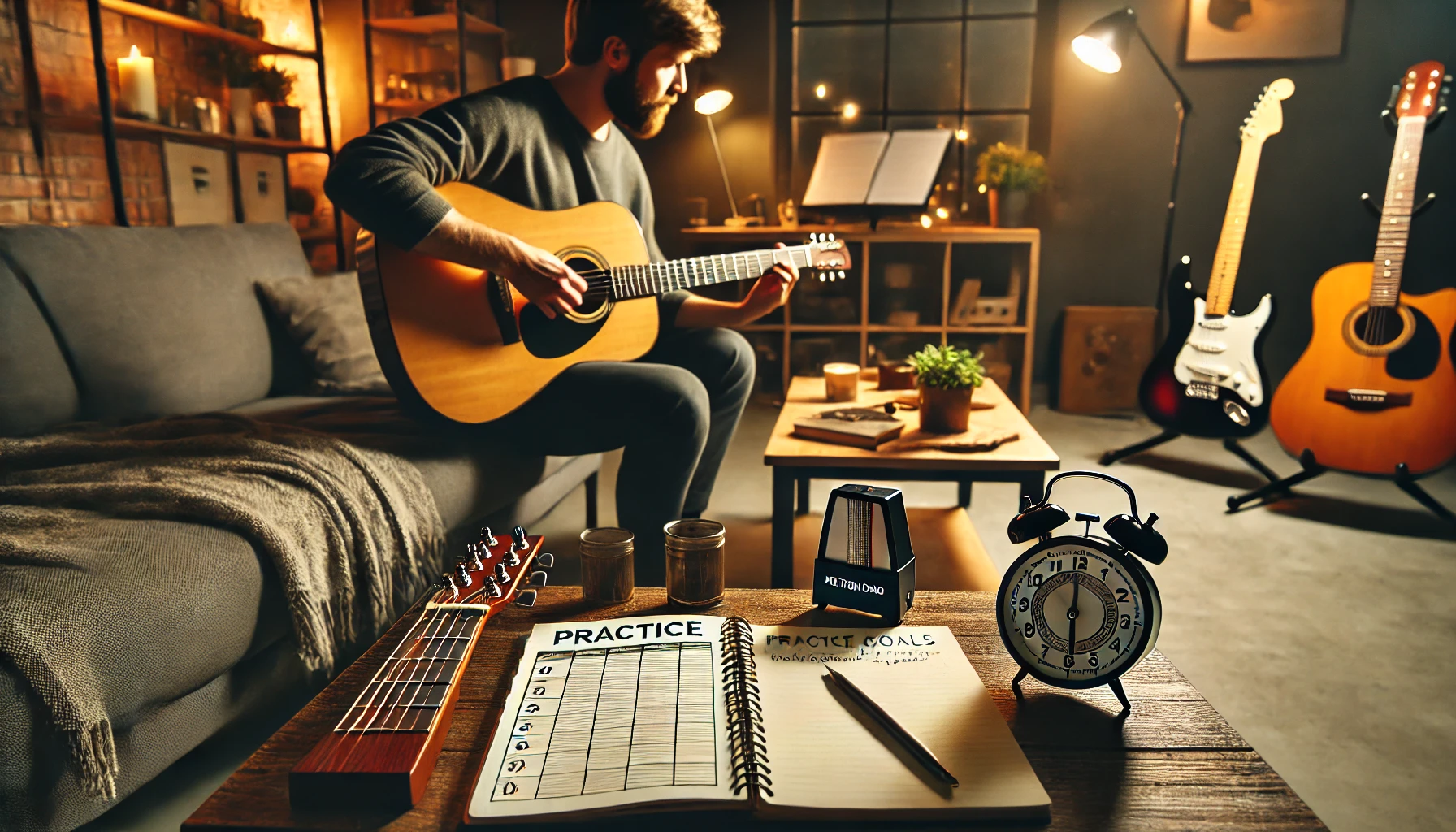Practicing music is more than just repeating the same pieces over and over—effective practice involves focus, strategy, and deliberate effort. By using the right techniques, you can make your practice sessions more productive and see faster progress. Whether you’re a beginner or an experienced musician, this guide will show you how to get the most out of your practice time.
Set Clear Goals for Each Session
Start each practice session with a clear objective:
- Short-term goals: Learn a specific section of a piece, improve finger placement, or master a difficult rhythm.
- Long-term goals: Prepare for a performance, develop sight-reading skills, or learn a new technique.
- Micro-goals: Break tasks into smaller steps, like playing four measures smoothly before moving on.
Having a clear focus helps you stay motivated and ensures steady progress.
Warm Up Properly
A good warm-up prepares your mind and body for practice:
- Stretch your hands and fingers: Prevent tension and improve flexibility.
- Play scales or arpeggios: Focus on evenness and accuracy.
- Start slow: Gradually increase tempo as your muscles loosen up.
Warming up reduces the risk of injury and helps you play with ease.
Practice in Small Sections
Breaking a piece into smaller parts makes it easier to focus and improve:
- Work on one section or phrase at a time, repeating it until you feel confident.
- Isolate the most challenging measures and practice them slowly.
- Once mastered, connect the sections to play the entire piece seamlessly.
This method prevents overwhelm and ensures you give attention to every detail.
Slow Down to Speed Up
Playing slowly helps you focus on accuracy and technique:
- Use a metronome to keep a steady tempo.
- Play at half speed, ensuring every note is clear and deliberate.
- Gradually increase the tempo as you become more confident.
Practicing slowly prevents mistakes and builds strong muscle memory.
Use the “Loop and Layer” Method
This approach is great for tackling complex passages:
- Play the first note or chord until it feels natural.
- Add the next note or chord and practice the two together.
- Gradually build the phrase by adding one note or chord at a time.
This technique allows you to focus on precision while building confidence step by step.
Record Yourself
Recording your practice sessions is a valuable tool for self-assessment:
- Listen for areas where your timing, dynamics, or technique need improvement.
- Compare your progress over time to see how far you’ve come.
- Use recordings to prepare for performances or auditions.
Self-evaluation helps you identify strengths and weaknesses.
Alternate Between Focus and Creativity
Effective practice balances structure with freedom:
- Spend part of your session working on technical exercises and repertoire.
- Dedicate time to improvisation, composition, or experimenting with new ideas.
- Use creativity to stay engaged and explore your personal style.
This balance keeps practice enjoyable while building well-rounded skills.
Incorporate Visual and Mental Practice
You don’t always need your instrument to practice effectively:
- Visualize playing a piece, imagining your fingers moving across the instrument.
- Mentally rehearse rhythms, melodies, or fingerings.
- Use sheet music to analyze structure, dynamics, and phrasing.
Mental practice strengthens your memory and understanding of the music.
Take Breaks to Avoid Fatigue
Short, focused sessions are often more productive than long, exhausting ones:
- Practice for 25–30 minutes, then take a 5–10 minute break.
- Use breaks to stretch, hydrate, or listen to music for inspiration.
- Return to practice with fresh focus and energy.
Breaks prevent burnout and improve overall efficiency.
Stay Consistent
Consistency is the key to long-term improvement:
- Practice daily, even if only for 15–20 minutes on busy days.
- Create a routine that works with your schedule and stick to it.
- Celebrate small victories to stay motivated.
Regular practice builds habits and keeps your skills sharp.
Conclusion
Effective practice is about quality, not just quantity. By setting clear goals, breaking music into manageable sections, and balancing focus with creativity, you can make steady progress and enjoy the process of improving. Remember, every minute spent practicing with intention brings you closer to mastering your instrument and expressing yourself through music.

